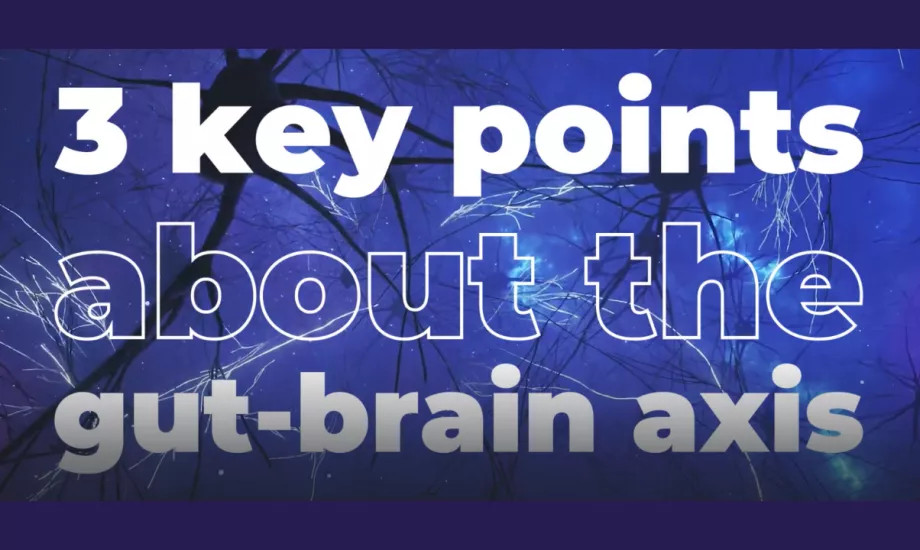Anxiety disorders
Certain anxiety disorders, which a great number of people suffer from, may be linked to activity in the gastrointestinal microbiota through the regulation of stress hormones. The discovery of the role of the microbiota in anxiety disorders allows us a glimpse of new potential avenues for treatment.
- Learn all about microbiota
- Microbiota and related conditions
- Act on your microbiota
- Publications
- About the Institute
Healthcare professionals section
Find here your dedicated section
Sources
This article is based on scientific information
Sections

About this article
Anxiety disorders, which include phobias, generalized anxiety disorder, obsessive-compulsive disorder, and post-traumatic stress, are characterized by both physical symptoms (tremors, palpitations, digestive spasms) and mental symptoms (anxious anticipation, hypervigilance, etc.). Fourteen percent of the European population is affected by this illness.
Microbiota activity as a regulator
The gastrointestinal microbiota plays a role in regulating anxiety symptoms related to stress through the microbiota-gut-brain axis. Recent data from humans in good health confirms hypotheses formulated with mice, suggesting that the microbiota influences mood and anxiety.
Stomach-brain paths of interaction
Intestinal microbiota-brain interactions involve the neurological pathway, through the activation of the vagus nerve and the onset of anxious signs (a knot in the stomach), and the blood, through the transportation of molecules from the intestine to the brain. The relevant molecules have several origins: bacterial molecules able to cross the lining of the brain (meninges), molecules secreted by intestinal cells (neuropeptides), and pro- or anti-inflammatory molecules (cytokines) produced by the intestine’s defense system.
New avenues for treatment
Beyond traditional treatment for anxiety disorders (psychotherapy, phytotherapy, anxiolytics, etc.), connections between the gastrointestinal microbiota and the brain are opening new avenues for treatment, such as probiotics, which aim to change the composition of the microbiota. However, the clinical effectiveness of this approach still remains to be proven.

Recommended by our community

"Good question!" - Sherrie Miranda (From My health, my microbiota)
- Wittchen HU, Jacobi F, Rehm J, et al. The size and burden of mental disorders and other disorders of the brain in Europe 2010. Eur Neuropsychopharmacol. 2011;21(9):655-679.
- Clarke G, Grenham S, Scully P, et al. The microbiome-gut-brain axis during early life regulates the hippocampal serotonergic system in a sex-dependent manner. Mol Psychiatry. 2013;18(6):666-673.
- Nishino R, Mikami K, Takahashi H, et al. Commensal microbiota modulate murine behaviors in a strictly contamination-free environment confirmed by culture-based methods. Neurogastroenterol Motil. 2013;25(6):521-528.
- Neufeld KM, Kang N, Bienenstock J, et al. Reduced anxiety-like behavior and central neurochemical change in germ-free mice. Neurogastroenterol Motil. 2011 Mar;23(3):255-64, e119.
- Martin CR, Mayer EA. Gut-Brain Axis and Behavior. Nestle Nutr Inst Workshop Ser. 2017 ; 88:45-53.
- Kennedy PJ, Cryan JF, Dinan TG, et al. Kynurenine pathway metabolism and the microbiota-gut-brain axis. Neuropharmacology. 2017 Jan;112(Pt B):399-412.
- Kumar K, Sharma S, Kumar P, et al. Therapeutic potential of GABA(B) receptor ligands in drug addiction, anxiety, depression and other CNS disorders. Pharmacol Biochem Behav. 2013;110:174-184.
- Collins SM, Surette M, Bercik P. The interplay between the intestinal microbiota and the brain. Nat Rev Microbiol. 2012;10(11):735-742.












